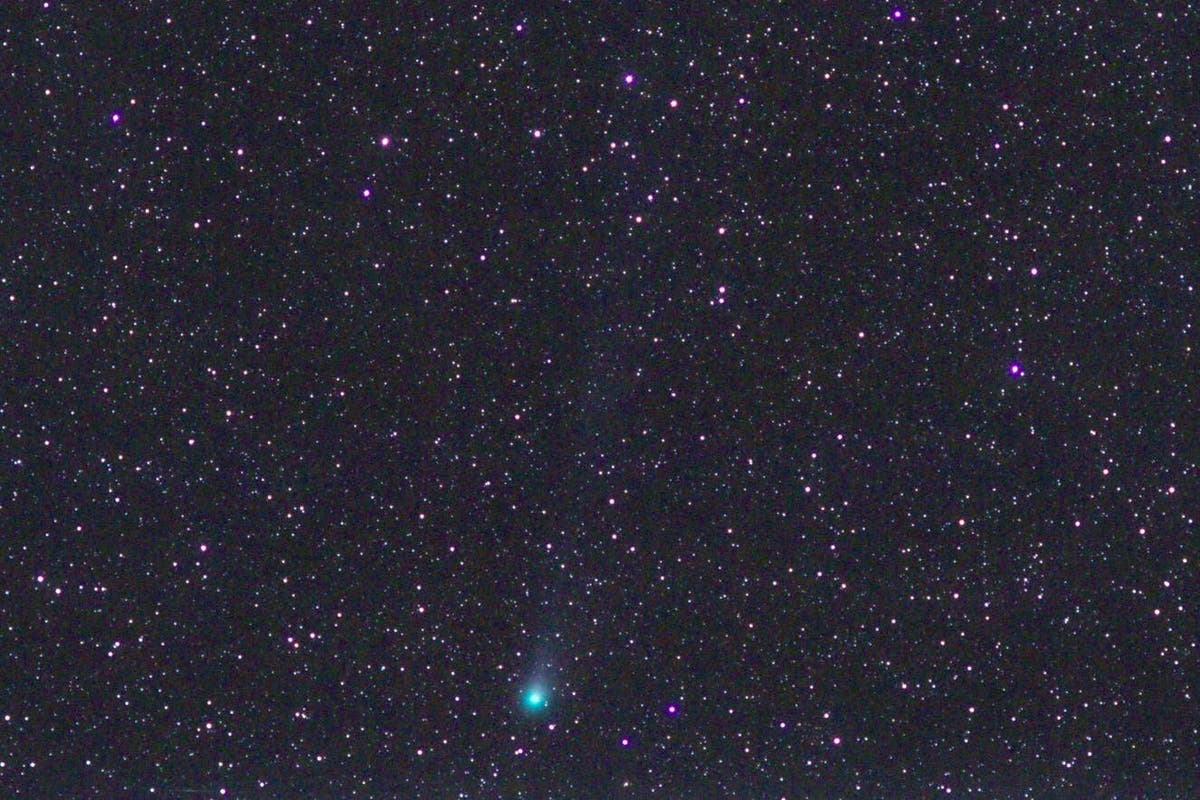A comet that passes by the Earth once every 71 years is currently visible in the night sky using binoculars or a small telescope.
Astronomers say 12P/Pons-Brooks is growing brighter and there is a possibility that stargazers will be able to see it with the naked eye in the coming weeks.
It has already had several outbursts of activity, raising its brightness periodically, according to Dr Megan Argo, an astrophysicist at the University of Central Lancashire.
She added: “If we’re lucky, it may have another in the next few weeks as it passes through the sky.”
Comets are celestial objects that are mainly made up of dust, rock and ice.
Dr Argo said: “You can think of them as a bit like giant dirty snowballs.”
12P/Pons-Brooks, named after its discoverers Jean-Louis Pons and William Robert Brooks, spends most of its time in the outer reaches of the solar system, where it is very cold. It comes back to the inner solar system every 71 years, and is hence known as a periodic comet.
Dr Argo said that as the comet gets close to the sun, the heat causes the ice to turn straight into gas – through a process called sublimation – and some of the material is lost from the surface.
She said: “This gas forms both a cloud around the solid nucleus of the comet – known as the coma – and a tail of material that can stretch many millions of miles in space.
“The tail is made of gas and dust that has been pushed away from the comet by the power of the solar wind streaming from the sun, and this tail is the bit that can become spectacular in the sky as seen from Earth.”
Dr Argo said that while 12P/Pons-Brooks is developing a nice tail, it is “not quite visible without binoculars or a telescope just yet”.
For those looking to spot the comet, it is below – and slightly to the left of – the Andromeda galaxy.
Stuart Atkinson, an amateur astronomer based in Cumbria, has been tracking the object for some time, taking photos on his Canon 700D DSLR camera.
He said that, technically, 12P/Pons-Brooks should be visible to the naked eye now, but that “in reality, it needs a pair of binoculars or a telescope to be seen because most people live in places with light pollution”.
People think comets whoosh across the sky, like shooting stars, but that’s not true. They only move a small amount each night, so the comet will be in the sky for a while yet
Amateur astronomer Stuart Atkinson
Mr Atkinson, who has written 14 books on astronomy, said: “Over the next few week or so it will brighten a little more, but the moon is in the sky now, and its brightness will dim the comet.”
He said the best way to see the comet is to find a place with dark skies and with no tall trees, buildings or hills to block the views.
He said: “You’ll need binoculars to see the comet, and even then it will only look like a smudgy star with a hint of a tail behind it.
“Luckily there’s a bright planet quite close to it – Jupiter – so if you pan your binoculars to the right of Jupiter, very slowly, that will help.
“People think comets whoosh across the sky, like shooting stars, but that’s not true. They only move a small amount each night, so the comet will be in the sky for a while yet.”
For those wanting to take photos, Mr Atkinson advises using a DSLR camera on a tripod, or a telescope.
He said: “The comet is too small and too faint to be picked up by phone cameras, unless you use the special ‘night mode’ or an astrophotography app, and even then it is so small it will be hard to image with a phone camera.”

Dr. Thomas Hughes is a UK-based scientist and science communicator who makes complex topics accessible to readers. His articles explore breakthroughs in various scientific disciplines, from space exploration to cutting-edge research.








